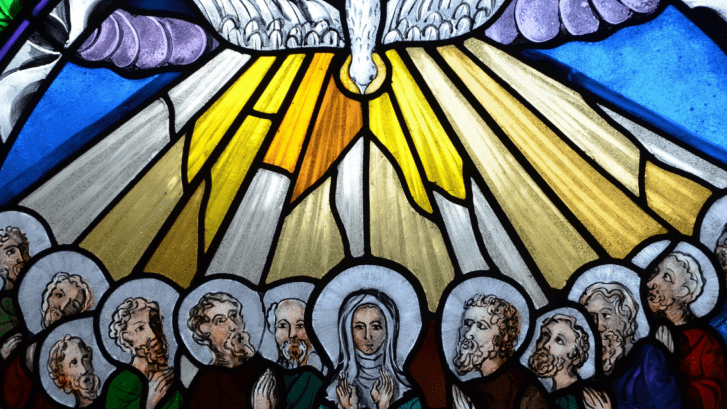When Catholics think of May, we think of our Blessed Mother, or Mother’s Day, and that is what I usually write about. But this year I would like to talk about a very important feast that is celebrated in May—Pentecost.
This Feast of Pentecost is often called the birthday of the Church. That is a good description. However, for most of us, when we think of the Church we unconsciously think of the Church as we know it now.
There was no papacy as we understand it today. There was a leader of fishermen; he was named Peter. He made mistakes, often messed up. There were no papal encyclicals; the first one was written in 1730. There were no Cardinals; that rank was created in the eleventh century. It was not until medieval times that we saw the title “Monsignor.” There were no church buildings, basilicas or cathedrals until the fourth century. There was no canon law until the twelfth century. There were no monks or nuns at the beginning of the Church, but still there was Church.
Much of the organizational growth of the Church over the centuries was necessary, but it had the unfortunate effect of making people identify the Church with its real estate, bureaucracy, titles, and laws instead of with themselves.
Remember—the Holy Spirit fell on people that first Pentecost and the Church was born. The spirit did not fall on the structure or the externals, for as we have seen, there were none. The spirit fell on tax collectors and seedy marginal folk. The spirit glued them together by three things: baptism into Jesus, the breaking of the bread, and witness by ordinary people.
These were the basics of being “Church.” The presumption was that each one upon whom the spirit fell had gifts to use to spread the Gospel. This was the early Church—fishermen, tax collectors, and simple people with a variety of gifts. The miracle of Pentecost was not that people could understand what the disciples said: the miracle was that ordinary people, who recently had been in hiding and full of fear, suddenly were Church and making bold proclamations without fear.
If we were set down in the desert, we would still be Church. If we had to gather in a prison cell to celebrate Mass, or if we had to hide in a barn to baptize our children, we would still be Church. Baptism, Eucharist and Witness make us Church. They are our defining identities, as they were on that first Pentecost when the Church was born.

